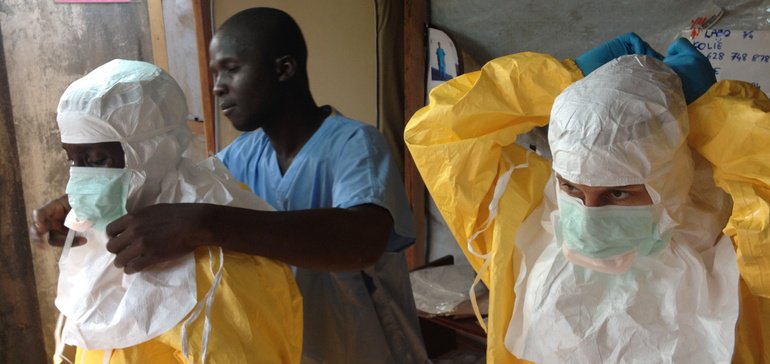
Dive Brief:
Hospitals were unprepared for the 2014 Ebola outbreak, but have improved preparations for an emerging infections disease outbreak, according to a new report from the HHS Office of Inspector General.
However, hospitals administrators remain concerned about “sustaining preparedness over time,” including worries about finances and competing priorities for resources and staff time.
In response to these lingering issues, OIG recommended the CDC, CMS and Office of the Assistant Secretary for Preparedness and Response continue to offer preparedness help for hospitals and suggested CDC clarify and promote the tiered framework for hospitals. OIG also said CMS should add emerging infectious diseases to the definition of “all hazards” in the state operations manual. The agencies concurred with OIG’s recommendations.
Dive Insight:
Hospitals have multiple potential large-scale events for which to plan. Flu pandemics, natural disasters and terrorist attacks can stretch hospital limits. In recent years, North American hospitals faced Ebola and SARS outbreaks and numerous mass casualty events. Hospitals are now preparing for the upcoming flu season.
Congo has been experiencing an Ebola outbreak since August. There have been about 200 confirmed cases and more than 100 confirmed deaths, according to the CDC. The World Health Organization recently declined to name it a global health emergency.
To see how U.S. hospitals are preparing for diseases like Ebola, OIG conducted an online survey of 368 hospitals early last year. The agency reported that nearly three-fourths of hospital administrators admit their facilities were not ready for the Ebola outbreak four years ago. At the time of the survey however only 14% of hospital leaders said they’re not prepared for emerging infectious disease threats.
Hospitals have improved preparations by updating emergency plans, training staff on treating patients in an outbreak, purchasing additional supplies and conducting emerging infectious disease-focused drills, OIG found.
Potential issues remain as hospital administrators acknowledged problems with preparedness. The watchdog agency found that one-third of hospitals didn’t know their role in the tiered hospital framework the CDC designed to help hospitals treat Ebola cases.
Currently, health officials are watching the flu season begin and already warning it could be sever. Last week, an unvaccinated child in Florida was the first flu-related death of the season.
Hospitals know how a flu outbreak can cause problems. The 2017-2018 flu season was a tough one for healthcare facilities. Hospitals saw high levels of outpatient clinic and emergency department visits and high influenza-related hospital rates. The uptick of flu visits began in November and peaked in January and February, CDC said.
The agency estimates that about 80,000 people died from flu-related illnesses during the last flu season.
